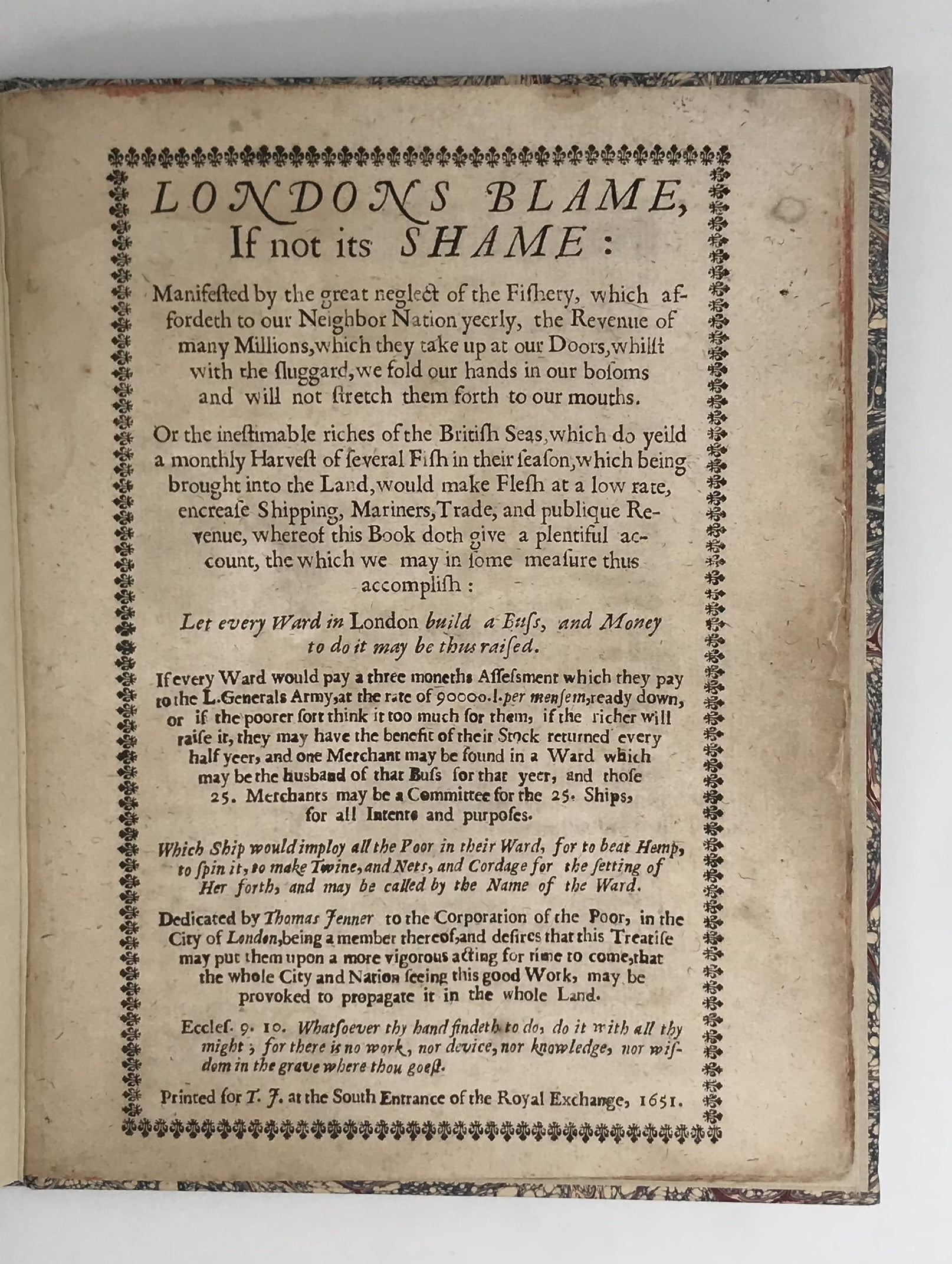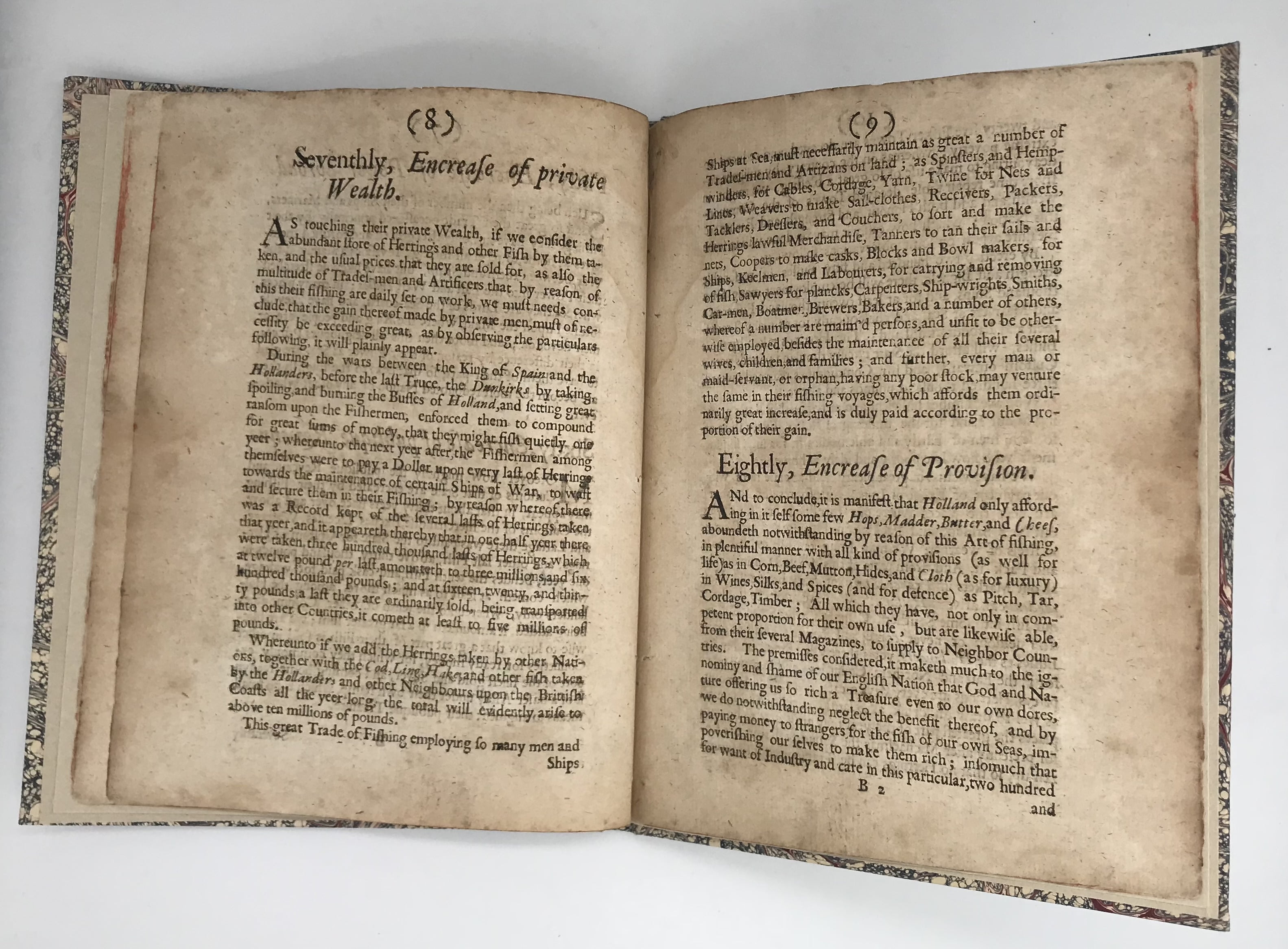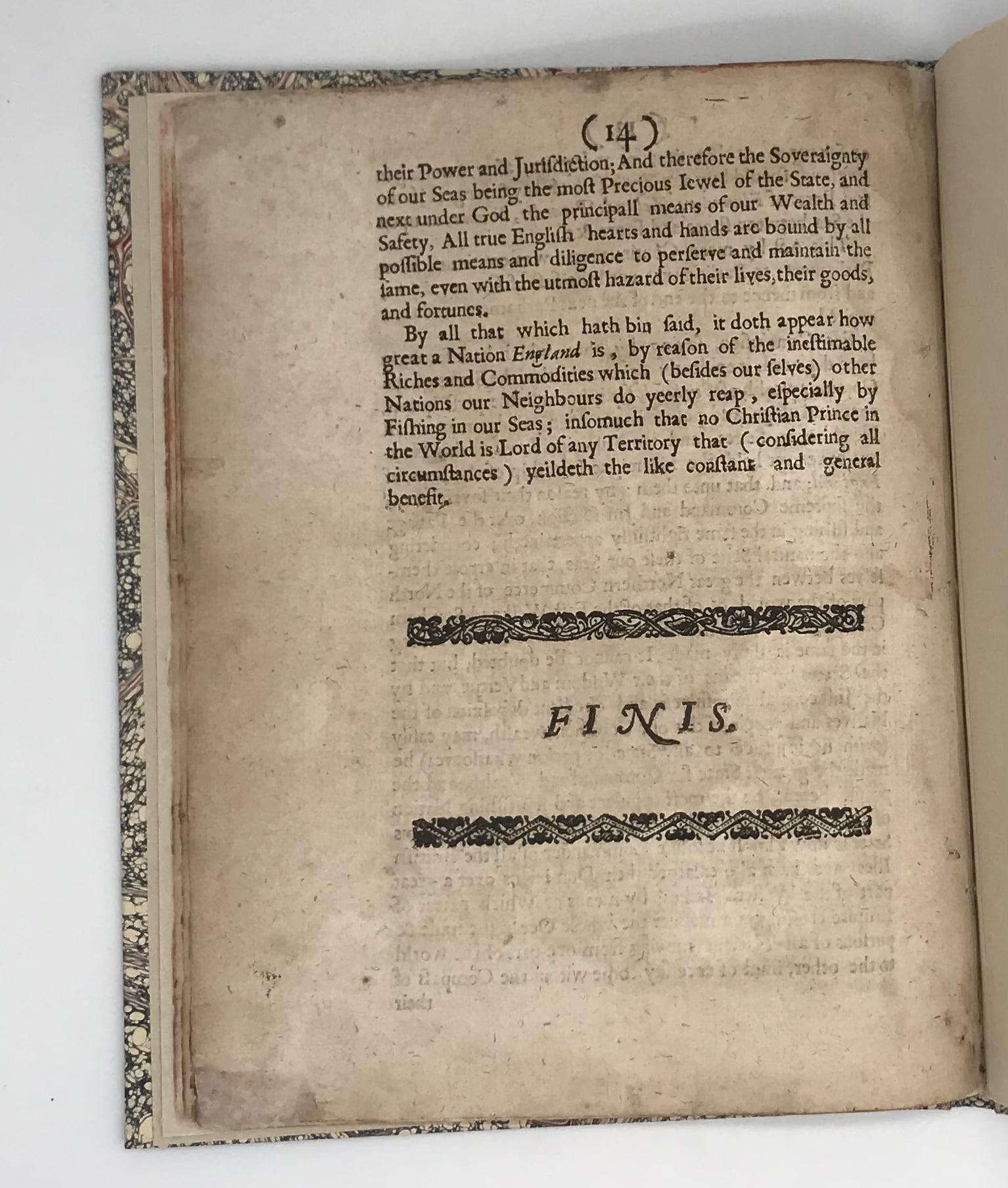JENNER, Thomas
Londons blame, if not its shame: manifested by the great neglect of the fishery, which affordeth to our neighbor nation yeerly, the revenue of many millions.
[London], Printed for T[homas] J[enner], 1651£1,750.00
FIRST EDITION. 4to. pp. [ii], 14. A-B4. Roman letter some Italic. Title within typographical border, woodcut initials, typographical and woodcut ornaments. Light browning, fore-edge of t-p slightly chipped, occasional marginal spot or stain. A good copy, well margined, in modern marbled paper boards.
Rare first edition of this interesting work on fisheries and the lack of their exploitation by the British fishing industry, an important early treatise in the benefits of concerted investment in a particular industry. The work set out in eight clear points why such an investment would be beneficial from an “Encrease in Shipping” and an “Encrease of private Wealth” to an “Encrease of Power abroad”. “Jenner was one of the main London print publishers and sellers; his active career spanned over half a century. His beginnings remain obscure. He was a member of the Grocers’ Company, and was possibly the Thomas Jenneu, son of James, who received his freedom in 1619. His earliest publication, a portrait by Delaram (Hind II 229.28), is securely dated to 1618. There are strong reasons for thinking that he took over the short-lived business of Maurice Blount which was at the same address. … The prints made for him in 1621 by Willem de Passe, who was married to an ‘Elisabeth Jennerts’ – presumably a relation – were the finest produced in London at the time, and were entered into the Stationers’ register on his behalf by George Fairbeard. Jenner still produced some significant plates in the 1630s (eg the portrait of the Earl of Northumberland by Cornelis van Dalen, Hind III 254.5), but his stock went steadily down-market over the years, and by his death he was only a marginal figure. .. In 1651 he wrote a political pamphlet, ‘London’s blame if not its shame’, attacking supine government policy over the fishing industry. Although Jenner was a specialist print publisher, many of his publications include letterpress.” British Museum.
“Not all Jenner’s books were devotional, and with London’s Blame if not its Shame (1651) he revealed both patriotism and business acumen. The work is a plea for developing the fishing of English coastal waters which, Jenner argues, if efficiently exploited would not only provide a vital source of food but also give employment ‘for a thousand Ships, and at least twenty thousand Fishermen and Mariners at Sea, and consequently as for as many Tradesmen and Labourers at Land’ (London’s Blame, 10).” DNB.
“Although seventeenth-century writers often stated the principle that the gain of one party in trade was at the expense of the other, suggesting a finite understanding of commerce, they were simultaneously able to envisage how it might expand without resulting in a corresponding loss. Most simply, it was possible to increase agricultural and industrial production alike: English territories contained vast natural resources ripe for exploitation, as reflected in the huge number of agricultural pamphlets of the period, as well as a burgeoning interest in technological inventions, in mining, land drainage, and numerous other enterprises. And if husbandry could fuel expanded trade, the seas surrounding Britain offered what was believed to be ‘a continual Sea-harvest of grain’, from ‘infinite shoals and multitudes of Fishes’. T. Jenner, Londons blame, if not its shame (London, 1651), p. 1.” Leng, T. ‘Commercial conflict and regulation in the discourse of trade in seventeenth-century England.’
ESTC R202638. Wing J667. Thomason, E.624 [4]. Goldsmiths’-Kress no.1199.In stock







